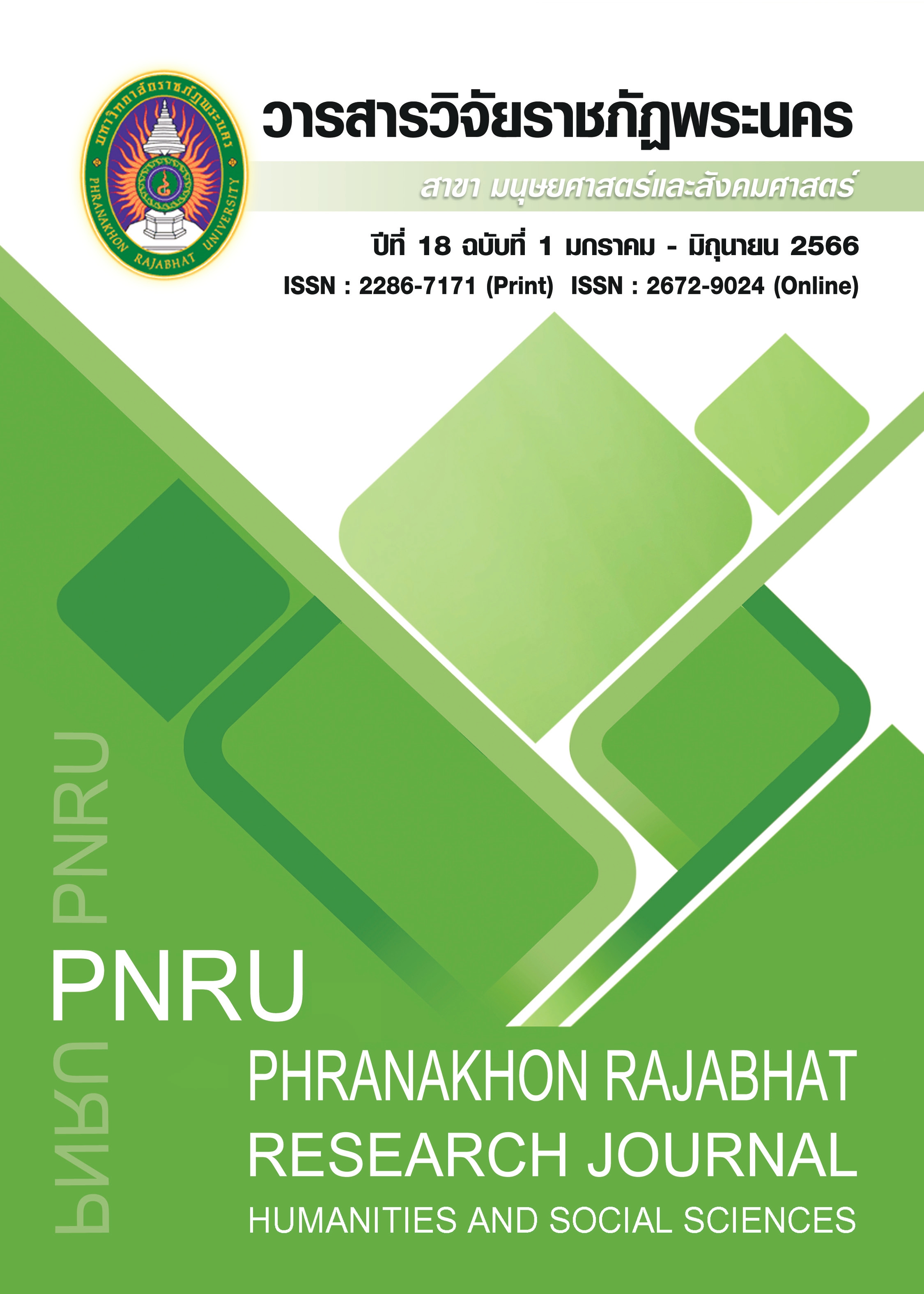การนำนโยบายการพัฒนาการอุทธรณ์พิกัดอัตราศุลกากรของกรมศุลกากรไปปฏิบัติ
Main Article Content
บทคัดย่อ
การศึกษาครั้งนี้มีวัตถุประสงค์เพื่อ (1) ศึกษาสภาพปัญหาของการนำนโยบายการพัฒนาการอุทธรณ์พิกัดอัตราศุลกากรของกรมศุลกากรไปปฏิบัติ (2) วิเคราะห์ปัจจัยที่มีความสัมพันธ์กับความสำเร็จในการนำนโยบายการพัฒนาการอุทธรณ์พิกัดอัตราศุลกากรของกรมศุลกากรไปปฏิบัติ และ (3) เสนอแนวทางการปรับปรุงการนำนโยบายการพัฒนาการอุทธรณ์พิกัดอัตราศุลกากรของกรมศุลกากรไปปฏิบัติ
การศึกษาครั้งนี้ใช้การวิจัยแบบผสานวิธี การวิจัยเชิงปริมาณ ประชากร คือ ข้าราชการของหน่วยงานภายในกรมศุลกากรที่ปฏิบัติงานเกี่ยวข้องกับการอุทธรณ์พิกัดอัตราศุลกากร ใช้วิธีการคำนวณกลุ่มตัวอย่างตามสูตรของทาโรยามาเน่ได้จำนวน 341 คน โดยการสุ่มตัวอย่างแบบชั้นภูมิ เครื่องมือที่ใช้ศึกษา คือ แบบสอบถาม สถิติที่ใช้ในการวิเคราะห์ข้อมูล ได้แก่ ความถี่ ร้อยละ ค่าเฉลี่ย ส่วนเบี่ยงเบนมาตรฐาน การวิเคราะห์ค่าสัมประสิทธิ์สหสัมพันธ์แบบเพียร์สัน การวิจัยเชิงคุณภาพ ประชากร คือ เจ้าหน้าที่ประจำส่วนอุทธรณ์พิกัดอัตราศุลกากร และผู้บริหารในกองพิกัดอัตราศุลกากร โดยเลือกกลุ่มตัวอย่างแบบเจาะจง จำนวน 7 คน เครื่องมือที่ใช้ศึกษา คือ แบบสัมภาษณ์แบบมีโครงสร้าง วิเคราะห์ข้อมูลโดยวิธีการวิเคราะห์เนื้อหา
ผลการศึกษาพบว่า (1) ปัญหาที่สำคัญ ได้แก่ ความเหมาะสมของจำนวนบุคลากร การมีส่วนร่วมของประชาชนในการประเมินผลสำเร็จ และแรงจูงใจในการมีโอกาสก้าวหน้าในอาชีพของเจ้าหน้าที่ อยู่ในระดับที่ต่ำกว่าปัจจัยด้านอื่น ๆ (2) ปัจจัยด้านการนำนโยบายไปปฏิบัติ ปัจจัยด้านการมีส่วนร่วมของประชาชน และปัจจัยด้านแรงจูงใจของเจ้าหน้าที่รัฐ มีความสัมพันธ์ในทิศทางเดียวกันกับความสำเร็จในการนำนโยบายการพัฒนาการอุทธรณ์พิกัดอัตราศุลกากรของกรมศุลกากรไปปฏิบัติ และ (3) แนวทางการปรับปรุง ได้แก่ หน่วยงานที่เกี่ยวข้องควรเพิ่มบุคลากรให้เหมาะสมกับปริมาณงาน ผู้บริหารควรกำหนดหน้าที่และเป้าหมายด้านระยะเวลาที่ชัดเจนให้แก่หน่วยงานสนับสนุนที่เกี่ยวข้อง เปิดโอกาสให้ประชาชนมีส่วนร่วมในการประเมินผลเพื่อนำมาวัดผลสำเร็จของนโยบาย และฝ่ายบริหารทรัพยากรบุคคล ควรเพิ่มโอกาสก้าวหน้าในอาชีพการงานแก่เจ้าหน้าที่ในกระบวนการอุทธรณ์พิกัดอัตราศุลกากรมากกว่าหน่วยงานอื่น ๆ
Article Details

อนุญาตภายใต้เงื่อนไข Creative Commons Attribution-NonCommercial-NoDerivatives 4.0 International License.
บทความที่ได้รับการตีพิมพ์เป็นลิขสิทธิ์ของมหาวิทยาลัยราชภัฏพระนคร
ข้อความที่ปรากฏในบทความแต่ละเรื่องในวารสารวิจัยราชภัฏพระนครเล่มนี้เป็นความคิดเห็นส่วนตัวของผู้เขียนแต่ละท่านไม่เกี่ยวข้องกับมหาวิทยาลัยราชภัฏพระนคร และคณาจารย์ท่านอื่นๆในมหาวิทยาลัยฯ แต่อย่างใด ความรับผิดชอบองค์ประกอบทั้งหมดของบทความแต่ละเรื่องเป็นของผู้เขียนแต่ละท่าน หากมีความผิดพลาดใดๆ ผู้เขียนแต่ละท่านจะรับผิดชอบบทความของตนเองแต่ผู้เดียว
เอกสารอ้างอิง
Best, J. (1977). Research in Education. New Jersey: Prentice Hall, Inc.
The Customs Department. (2018). History of the Customs Department. Retrieved form https://www.customs.go.th/about [2021, Oct. 11]
The Customs Department. (2021). History of the Customs Department. Retrieved form https://www.customs.go.th/cont_strc_annual_report.php?current_id=14232932404e505f4d464a4f464b49 [2021, Oct. 11]
Cohen, J. & Uphoff, N. (1977). Rural development participation: concepts and measures for project design, implementation and evaluation. Cornel University, Ithaka.
Edward, G. C. III. (1980). Implementing public policy. Washington, D.C.: Congressional Quarterly Press.
Jantarasorn, W. (2008). Public Policy Implementation Theory. (3rd ed.). Bangkok: Thai University Researchers Association.
Herzberg, F. (1959). The motivate to work. New York: John Wiley.
Ked-Ukkarawin, B. (2016). An approach to the development of the advance tariff ruling service provided by customs tariff bureau, Customs Department. (research report). Bangkok: Thammasat University. (in Thai)
Kumkun, C. (2017). An approach to the development of the of customs procedures to enhance the country's competitiveness. (research report). Bangkok: National Defence College. (in Thai)
Pearse, A. & Stiefel, M. (1980). Inquiry into participation: A research approach. Geneva: United Nations Research Institute for Social Development.
Rodsom, M. (2018). General knowledge of customs law and tariff law. (5th ed.). Bangkok: The Best Center Inter Group Publisher.
Sabatier, P. & Mazmanian, D. (1980). The implementation of public policy: A framework of analysis”. Policy studies journal, 8(4), 538-560.
Thamaluechu, P. (2007). Quality of working life of civil servants of the Customs Tariff Group, the Customs Department. (Term Paper). Bangkok: Thammasat University. (in Thai)
Udomwisawakul, N. (2017). Public policy agenda setting. Nonthaburi: Sukhothai Thammathirat Open University.
Van Meter, D. S. & Van Horn, C. E. (1975). The policy implementation process: A conceptual framework. Administration & Society, 6(4), 445–488.


